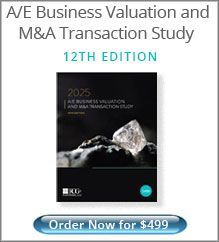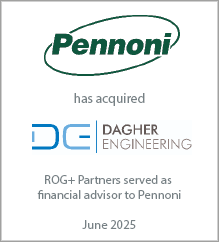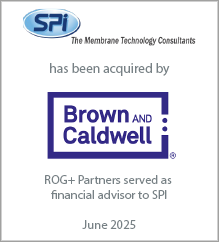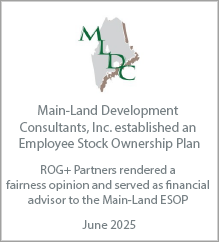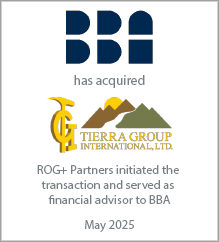Ian has spent the past twenty years working with hundreds of architecture, engineering and environmental consulting firms large and small throughout the U.S. and abroad with a focus on ownership planning, business valuation, ESOP advisory services, mergers & acquisitions, and strategic planning. Ian is a professionally trained and accredited business appraiser and holds the Accredited Senior Appraiser (ASA) designation with the American Society of Appraisers and is a certified merger & acquisition advisor (CM&AA) with the Alliance of Merger & Acquisition Advisors.
Tackling the Human Behavior Side of Ownership Transition Planning
March 6, 2014
When A/E business owners begin to think about ownership transition planning, the focus tends to be on what I would refer to as the “mechanical” side. By mechanical, I mean the legal and financial elements, such as how to value the firm’s stock, how to finance stock redemptions, or how to structure the shareholders agreement. And I must admit that as a business appraiser and financial consultant, this is often the angle from which I first approach transition planning.
While these mechanical aspects must be dealt with in any ownership transition plan, the larger challenge is often non-mechanical — the human behavior side. Even with the best plan in place, if the next generation of owners is ill-prepared to lead, or unwilling to take on the risks (financial and otherwise) of ownership, there will be little to no chance of success.
Tackling the human behavior side of transition planning requires an understanding of generational differences. Many people will rightly argue that you can’t paint all members of a particular generations with the same brush, whether its Baby Boomers, Generation X, Generation Y or Echo Boomers. However, the truth is that each generation has shared characteristics and values shaped by the environment in which it came of age. Understanding these common characteristics, particularly the differences in professional work habits, motivations, and leadership styles is a critical aspect of attracting, retaining and developing the next generation of leaders, thereby laying the groundwork for a smooth transition.
My friend Bob Kelleher of the Employee Engagement Group has spent the better part of his career examining workplace cultures within some of the world’s largest A/E and environmental consulting firms, and building an understanding of these generational differences. He eschews the notion that millennials, as they are commonly referred to, lack motivation, or work ethic (a common refrain from older generations). He states,
While these mechanical aspects must be dealt with in any ownership transition plan, the larger challenge is often non-mechanical — the human behavior side. Even with the best plan in place, if the next generation of owners is ill-prepared to lead, or unwilling to take on the risks (financial and otherwise) of ownership, there will be little to no chance of success.
Tackling the human behavior side of transition planning requires an understanding of generational differences. Many people will rightly argue that you can’t paint all members of a particular generations with the same brush, whether its Baby Boomers, Generation X, Generation Y or Echo Boomers. However, the truth is that each generation has shared characteristics and values shaped by the environment in which it came of age. Understanding these common characteristics, particularly the differences in professional work habits, motivations, and leadership styles is a critical aspect of attracting, retaining and developing the next generation of leaders, thereby laying the groundwork for a smooth transition.
My friend Bob Kelleher of the Employee Engagement Group has spent the better part of his career examining workplace cultures within some of the world’s largest A/E and environmental consulting firms, and building an understanding of these generational differences. He eschews the notion that millennials, as they are commonly referred to, lack motivation, or work ethic (a common refrain from older generations). He states,
“Millenials are willing to work every bit as hard as the generations that preceded them, they just work differently, and they’re not necessarily motivated by the same things. This often creates a disconnect inside A/E firms. The vast majority of company cultures are derived from founders and principals who come from older generations – generations whose motivations are vastly different than the millennials who are entering the workplace. This disconnect needs to be addressed because millennials will make up the largest population in the workplace as early as 2015!”
Creating a workplace culture that allows your firm to attract and retain the best of the millenials, and allows them to grow and thrive is every bit as important as the mechanical aspects of your ownership transition plan, not to mention all the other benefits, such as reduced employee turnover and better financial performance.
If you’re interested in exploring the topic of ownership transition planning from a more holistic level, we’re pleased to be co-hosting a one-day workshop together with the Employee Engagement Group. Titled Solving the Cultural and Financial Challenges of Ownership Transition, this workshop will be led by Bob Kelleher and me (Ian Rusk), and will cover the following topics:
- An overview of the A/E industry and the unique challenges of transition planning
- The cultural and workforce dynamics at play in today’s post recessionary times (Do you know– “who’s sinking your boat?”)
- The vastly different motivational drivers of Baby Boomers, Generation X and Generation Y (the millennials)
- How to identify and engage your future leaders and owners
- Strategies for getting your future leaders to think like owners
- Identifying the perfect ownership model for your firm
- Making your company’s stock the best investment in your portfolio
- Succession planning best practices – so you can turn over leadership and ownership with confidence
- The role of mergers & acquisitions in building a leadership pipeline




